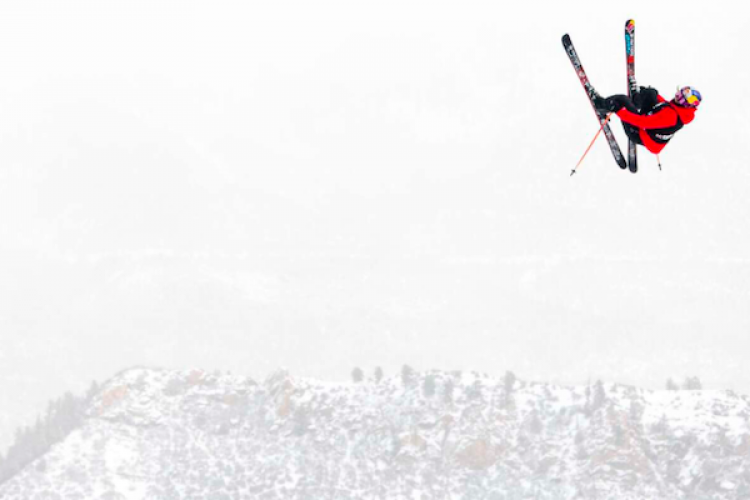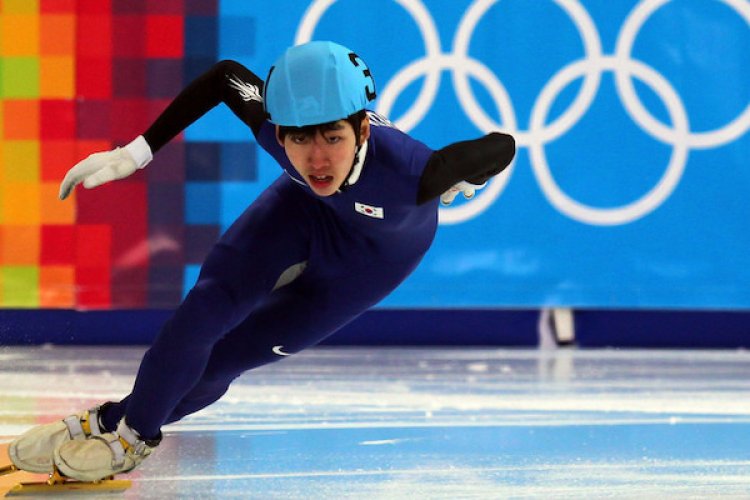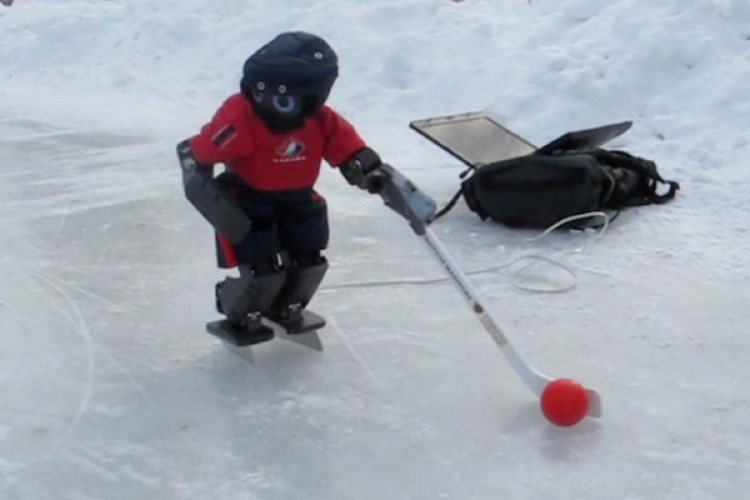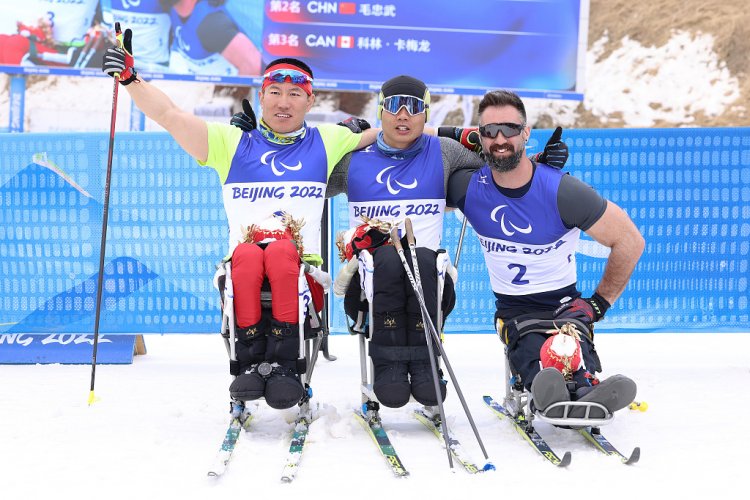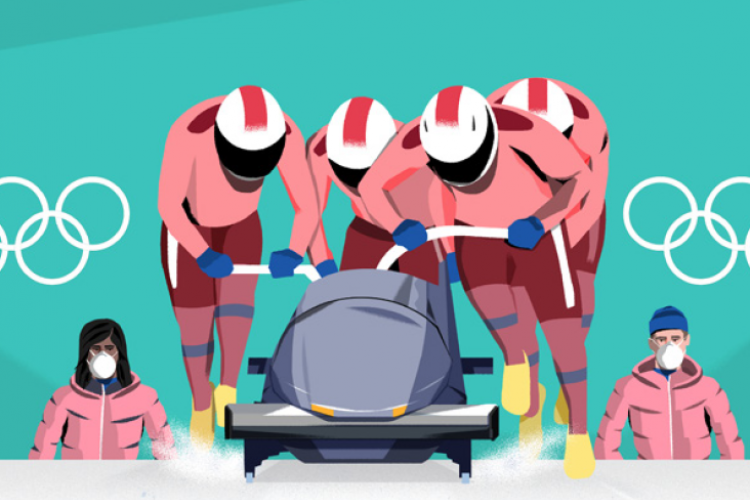OlymPicks: Iran's Paralympic Winter Athletes Given Cold Shoulder, Japan Turns Down Chinese Vaccine Offer
In OlymPicks, we highlight news, gossip, and developments regarding the buildup to Beijing's 2022 Winter Olympics.
Iranian Paralympic athletes forced to chart their own course
Although Iran officially made its Paralympic Winter Games debut at Nagano in 1998, it wasn’t until the PyeongChang games two decades later that the country sent more than one athlete to compete. Back in the early days, the responsibility of representing the country fell squarely on the shoulders of Para alpine skier Sadegh Kalhor, however, today, the honor is split between three Para snowboarders – Puriya Khaliltash, Hossein Solghani, and Sedigheh Rouzbeh – and two Para cross-country skiers, Aboulfazl Khatibi Mianaei and Farzaneh Rezasoltani. Unfortunately, in a story akin to Cool Runnings, given there are only five athletes representing the entire country at the Paralympic Winter Games, there is little support to be had from the state. Nevertheless, with their sights squarely set on Beijing 2022 and a second attempt at Olympic gold, these intrepid athletes aren’t about to let anything stand in their way.
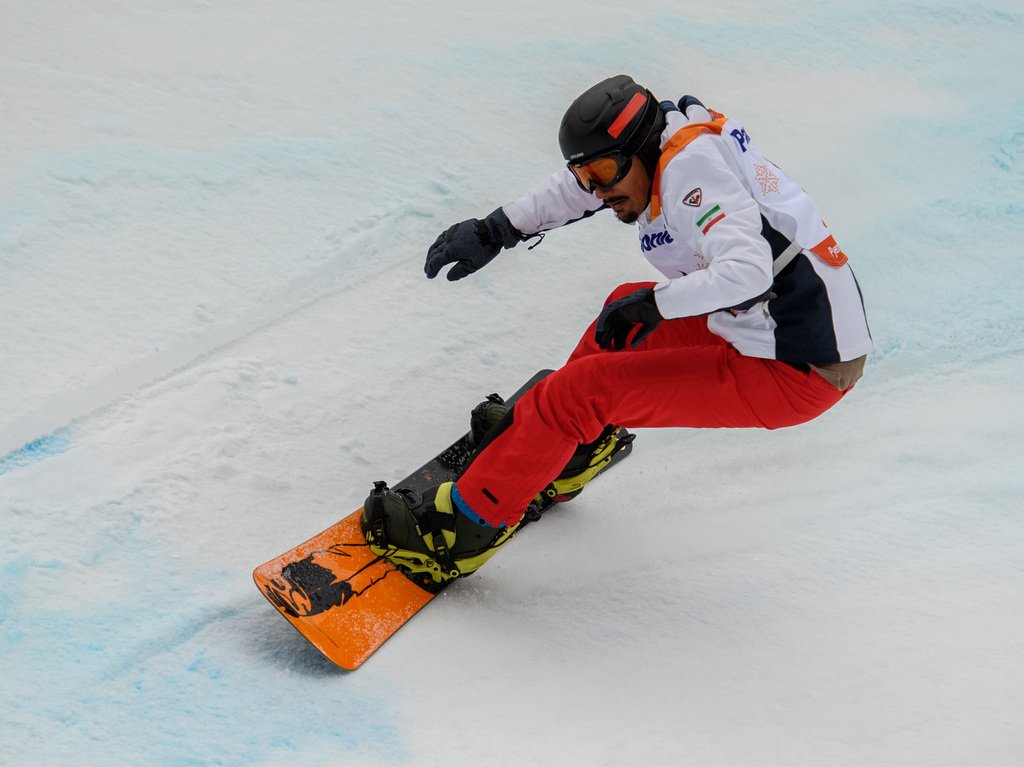
Iran is home to Dizin ski resort, which regularly hosts World Para Alpine Skiing and World Para Snowboard competitions. Despite this, the resort itself still doesn’t have any permanent fixtures fit for Para snowboard or ski training, meaning it’s up to snowboarder Puriya Khaliltash to design his own course – referred to as a cross – and rely on the kindness of friends to help him construct it. “I have to make the design, nobody does that,” Khaliltash told paralympic.org, adding, “We built a kicker here by ourselves because we don’t have the opportunity to jump on anything else.” Having finished 20th and 21st in snowboard cross and banked slalom, respectively, at the 2018 Games, Khaliltash understands all too well the repercussions of not being able to train properly, something that is decidedly frustrating when trying to do right by your native land. “I didn’t know how to represent Iran because they didn’t build the cross for me. I’m planning to design a cross so I can train on it and get a better chance at the Paralympic Games.”
On the women’s Para snowboard side is Sedigheh Rouzbeh, who will also be making her second appearance at the Games. Much like Khaliltash, Rouzbeh is eager to make-up for her last performance, which was significantly affected by a knee injury two days before her arrival in South Korea, an injury that resulted in a noticeably painful first run that lagged five minutes behind her nearest competitor. And foreshadowing her unwavering spirit and determination that continues to this day, Rouzbeh finished out her second run having shaved three minutes off her time. “After all the efforts, my knees were injured just before the Paralympic Games and I could hardly finish the race,” she explained. “It was a bad situation for me but I wanted to go to Korea. When I crossed the finish line, I was very happy. I can’t describe this moment.”
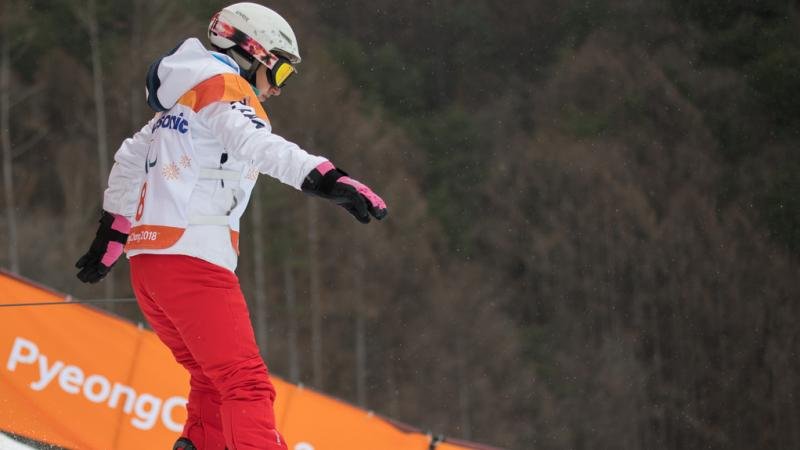
For both Khaliltash and Rouzbeh, the joy of competition far outweighs the obstacles and lack of infrastructure that they have to contend with to succeed. Rouzbeh, who balances her demanding training schedule with the equally demanding responsibilities of motherhood proudly stated, “I will never give up. My goal in the future is to inspire people who want to do great things with all their impairments.” Similarly, Khaliltash wants to see a suitable infrastructure put in place, not only for him and his teammates but for future generations of aspiring athletes. “I hope that more and more young people will come this way and the country will support us with the things we need.”
China offers vaccine to Tokyo 2020 athletes, Japan says thanks but no thanks
Meanwhile, the specter of COVID-19 has cast a long shadow over both the Tokyo 2020 Summer Games and Beijing 2022 Winter Games, with the former having been postponed last year during some of the darkest days of the pandemic. Now set to take place Jul 23 to Aug 8, with Paralympic competitions from Aug 24 to Sep 5, the Summer Games show no signs of being postponed – or canceled outright – again, as countries across the globe make significant headway in vaccinating their citizens. To help speed up that process, last week China offered to provide the International Olympic Committee (IOC) with an undisclosed amount of doses, albeit at the IOC’s expense, who in turn offered to purchase two additional doses for every athlete vaccinated, which would be disseminated amongst the general population of the athlete’s home country.

While IOC president Thomas Bach initially lauded the gesture as “kind,” his team was subsequently forced to clarify that only territories with an existing agreement with the Chinese government to use their vaccines would be eligible. As a result, Japan’s Olympic Minister, Tamayo Marukawa said that Japan had no such agreement with China, and would not be participating, adding, “We are taking comprehensive anti-infection measures so that people can feel secure about participating in the Tokyo Games, even without a vaccination. There is no change to our principle of not making vaccinations a prerequisite.” To date, 25 countries have approved the use of one of China’s two vaccines – Sinovac and Sinopharm – including Mexico, Cambodia, Peru, Zimbabwe, Philippines, Thailand, and others.
READ: OlymPicks: Two Olympians Attempt To Reclaim the Glory of the Games
Images: therantimes.com, OIS Photos, Lithuania National Olympic Committee


